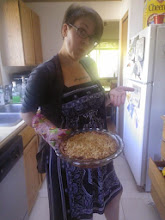Dear Mr. President,
In recent months I have cautiously forayed into the realm of internet dating sites in an attempt to get past an increasingly long string of failed romantic endeavors. For better or worse, meeting people online has introduced me to several interesting and intelligent men I would never have otherwise encountered. That I connect with them initially through the internet doesn't bother me, though it makes several of my friends uncomfortable. I do understand the inherent risk, and also the capacity for deception, that goes along with any virtual communication. I've been chatting online since the early days of AOL, I've had livejournal accounts, myspace and facebook pages, and now I have this blog, which often consumes a considerable amount of my time and energy. I have friends I met online who I have never spoken to in person, and friends I met online who became friends outside of the internet, and more than a few friends who I relate to differently online than I do in person. (I do not tweet. I'm sure, in time, I will succumb to it, but for now it is the one craze I have yet to find any interest in.) Because so much of my time is spent on the internet, I'm inclined to disagree with those who discount any communication, interaction or relationship that occurs online as inauthentic. I have been lied to online, but I have also been lied to by people I love who look me in the eye when they lie to me. I think any interaction with another human requires a certain amount of faith and results in a certain amount of disappointment, regardless of where or how that interaction takes place. The person I am online, the person who writes these letters and rants about the issues that matter to me and who even sometimes speaks in humiliatingly bad blank verse that should be kept to myself, is just as much of who I am as the person you'd encounter if you met me. Words I say are not any more authentic than words I type.
Every now and then, however, I encounter online behavior that really makes me question the dichotomy of our actual selves and our online selves. The NRCC aide who posted home addresses for a Democratic candidates staff on Twitter, for example. Would this man have gone on Television and announced the home addresses of these other staffers? Would he have shouted them out at a rally? Furthermore, is such irresponsible behavior the product of the internet's illusion of anonymity or is this a reflection of the aide's true nature? Some politicians don't seem to have this problem. Vice President Biden, for example, surely is more likely to exercise restraint when he writes something online, (perhaps giving him the chance to consider if "big fucking deal" is really the descriptive phrase most appropriate.) I have no doubt that Sarah Palin's speaking style lends itself well to the 140-character limit and fluid spelling laws of Twitter, which is why her tweets sound (marginally) more coherent than anything she's ever said in an unscripted TV interview. If I could not hide behind the screen of my laptop, or easily revise my words, would my letters to you be different?
At the end of the day I don't think it matters if one version of me is more real than the other. So much of our interaction now takes place or relates to the internet that whatever distortion of personality or character it may create is irrelevant. I am accountable for my actions, just like the men I meet online or the friends I chat with online or the politicians who campaign online. While your campaign may have successfully used the internet as a means to connect with a younger generation of voters, that no longer seems to be the case. You once posted on DailyKos, your campaign's organizing efforts were legitimately grassroots and unique. Now it seems like the same generic intern-composed junk mail in my inbox day in and day out. It seems like you've cut out the blogging community and limited e-mail communication to re-worked versions of the same request for money. The authenticity is lacking, not because it's the internet, but because the efforts are stilted and hollow. Once, you seemed to understand the power of connecting with the voters through any media. You can reach so many voters online if you're willing to expend the same kind of personal energy that you do in campaign speeches or town hall meetings that reach only those lucky enough to live in a targeted area. Other members of your administration seem to be using the internet as an effective means of communicating with Americans; I hope that you reconsider your own efforts to ease the enthusiasm gap on the left in time for the election. A little sincerity could go a long way.
Respectfully yours,
Kelsey
Subscribe to:
Post Comments (Atom)




No comments:
Post a Comment